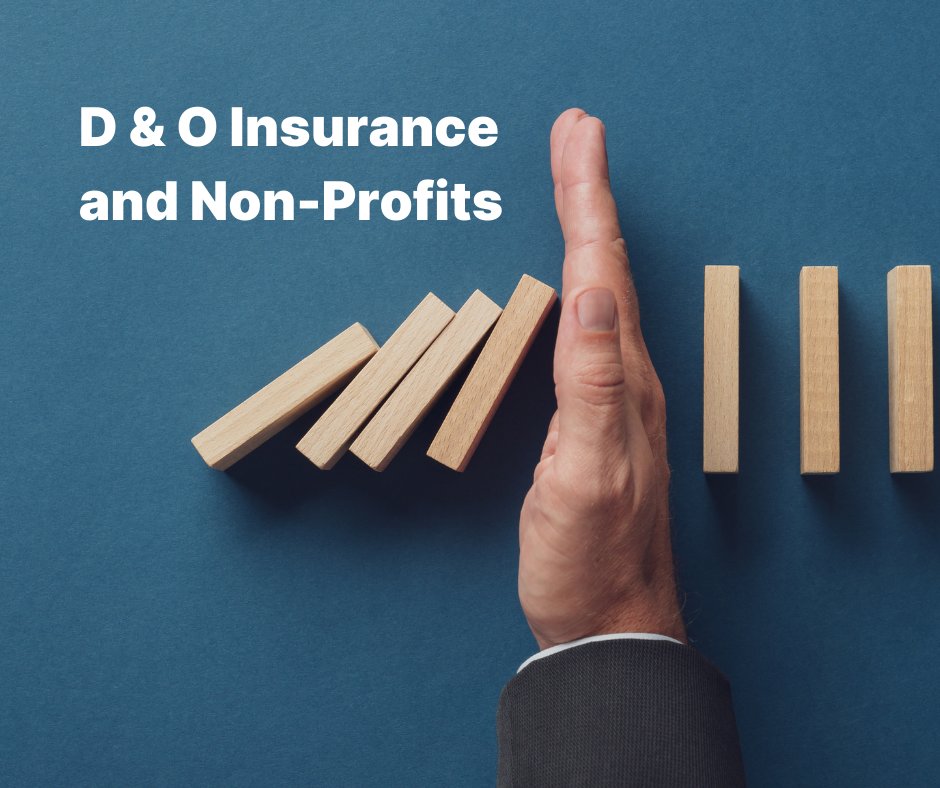D&O Exposures for Nonprofits

Nonprofit organizations are generally born of goodwill. But good intentions don’t automatically make companies or their officers immune to lawsuits, which is why D&O insurance is so essential.
Nonprofit organizations face the same risks as other businesses, and directors and officers are usually the most exposed. When officers are subject to claims and lawsuits, the company is inevitably affected one way or another. In some cases, these issues could even threaten the stability of the entire organization.
D&O insurance protects nonprofit organizations against poor management decisions and safeguards company assets and personnel. These types of insurance are especially effective when combined with risk management practices.
Why companies need D&O insurance
D&O insurance serves as an effective safety net for nonprofit organizations and their directors and officers. They can be especially useful if the risks commonly faced by company officers turn into actual cases. In most cases, they can provide valuable protection from litigation threats from donors, vendors, and company stakeholders.
Remember that board members, officers, employees, and the organization itself are always at risk of being sued for management decisions. But with a D&O, respondents will be covered for legal representation expenses and any other losses incurred during and after the legal proceedings.
Having a solid D&O insurance plan is a must regardless of the size of the nonprofit organization. Even if the claim is upheld in court, the personal assets of the company directors and officers will be spared, and the organization won’t incur further losses that could lead to bankruptcy.
Here we discuss the common D&O exposures that directors and officers of nonprofits face. Most of them are generally non-issues until a lawsuit is filed against the company, in which case it could cause problems for the organization.
Breach of duties and responsibilities
Directors and officers of nonprofits should always observe the highest standards in performing their duties and responsibilities. Lapses in judgment‒whether intentional or not‒could lead to lawsuits from individuals or corporate entities against company officers.
Common examples of breaches include the following:
- Unbecoming behavior, whether at work or on social media
- Disclosing classified information to outsiders
- Misrepresenting the company for personal gain
- Sexual harassment of employees or individuals who have dealings with the organization
Employment practices
Certain practices within the organization could cause dissatisfaction on the part of employees. Among the allegations that officers could face are:
- Encouraging or tolerating toxic company culture
- Lack of transparency
- Unfair promotion and demotion practices
- Unclear company goals
All of these risks could affect employee retention rates adversely. In more extreme cases, they may lead to lawsuits against company officers and managers.
Fortunately, there are many ways by which organizations could avoid these risks. One of the most effective strategies is establishing clearly defined company by-laws, which leaves nothing to ambiguity and misinterpretation. Officers should also address practices that are detrimental to the company as early as possible to lower the risk exposure in these particular areas.
Lack of indemnification
Most nonprofits have a standard method of indemnification for directors and officers. But there are cases wherein companies aren’t able to address indemnification concerns adequately. Common reasons include:
- Insufficient funds to pay for damages caused by company directors or officers
- Resistance to indemnification due to management or team changes
- Refusal of the board to allow indemnification claims
- Deeming indemnification as inappropriate
- State and law limitations on indemnification
Problems with mergers, successions, and governance
Nonprofit organizations are often at risk for lawsuits when executing mergers, particularly when the terms and conditions outlined by the union aren’t met. Companies also risk claims related to corporate governance and succession of positions, even when they involve family members.
In the case of mergers, lawsuits may be filed by shareholders. Claims may also be filed in response to failed transactions resulting in bankruptcy, lack of diligence related to acquisitions, and unresolved claims from recently merged or acquired companies.
Disputes over the legality of the successor often arise during succession proceedings. Even when the current officer and the appointee are related, it isn’t unusual for companies to be accused of manipulating board of director votes.
Insufficient insurance coverage
Although D&O insurance and other nonprofit insurance plans are improving and becoming more comprehensive, many organizations are still at risk for unexpected lawsuits. Insufficient insurance coverage‒particularly D&O‒could tip the scales in favor of the plaintiff and result in considerable damage to the firm and its officers.
Of course, D&O insurance continues to evolve over time. In the coming years, nonprofits can expect insurance companies to offer higher policy limits to better protect from unexpected claims.
About Moody Insurance Worldwide
Moody Insurance Worldwide, a division of Moody & Associates founded in 1914, is a leading provider of risk management programs and insurance coverage to individuals and businesses across the East Coast. We write all sizes of businesses, with technical expertise in many key industry areas, and provide personal insurance programs for estates and high net worth individuals. Our licensed, experienced commercial account managers can work with you to determine the coverage that you need at a competitive rate. Contact us today at (855) 868-0170 to learn more about what we can do for you.


